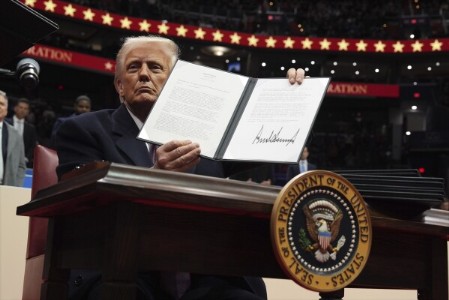Air India finalises over 800 LEAP engine order, signs services agreement deal with CFM International
Total Views | 118
Air India and CFM International have completed the order for LEAP engines, which will power the airline's new fleet of 210 Airbus A320/A321neos and 190 Boeing 737 MAX family planes, which was initially announced in February. Both firms also agreed on a multi-year servicing contract for the airline's whole fleet of LEAP engines.

In Pic : From left: Gaël Méheust, CFM International; Russell Stokes, GE Aerospace; Campbell Wilson, Air India; and Jean-Paul Alary, Safran Aircraft Engines| CFM PR
Air India has been a CFM client since 2002, when the airline began using CFM56-5B engines on Airbus A320ceo aircraft. Air India became the first LEAP-1A powered operator in India when it began operating A320neos in 2017. The airline now operates 27 LEAP-1A-powered A320neo family aircraft.
We are delighted to celebrate with CFM a major deal that will play a key role in our future development,” said Campbell Wilson, CEO and Managing Director of Air India. “The introduction on a greater scale of the LEAP engine as well as our services agreement will help us to optimise our operations in terms of environmental footprint and operational cost, while benefiting our customers.”
“The renewed trust of Air India is a major milestone in CFM history,” said Gaël Méheust, President and CEO of CFM International. “This order strengthens our presence in India and commits us to further support Air India’s development with the best CFM standards in terms of reliability, efficiency and customer support.”
The LEAP engine family has achieved one of the fastest accumulations of flight hours in commercial aviation history, amassing more than 33 million engine flight hours and 15 million flight cycles.
Bharati Web






